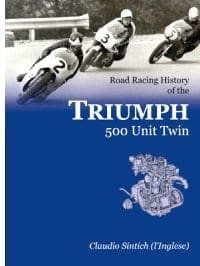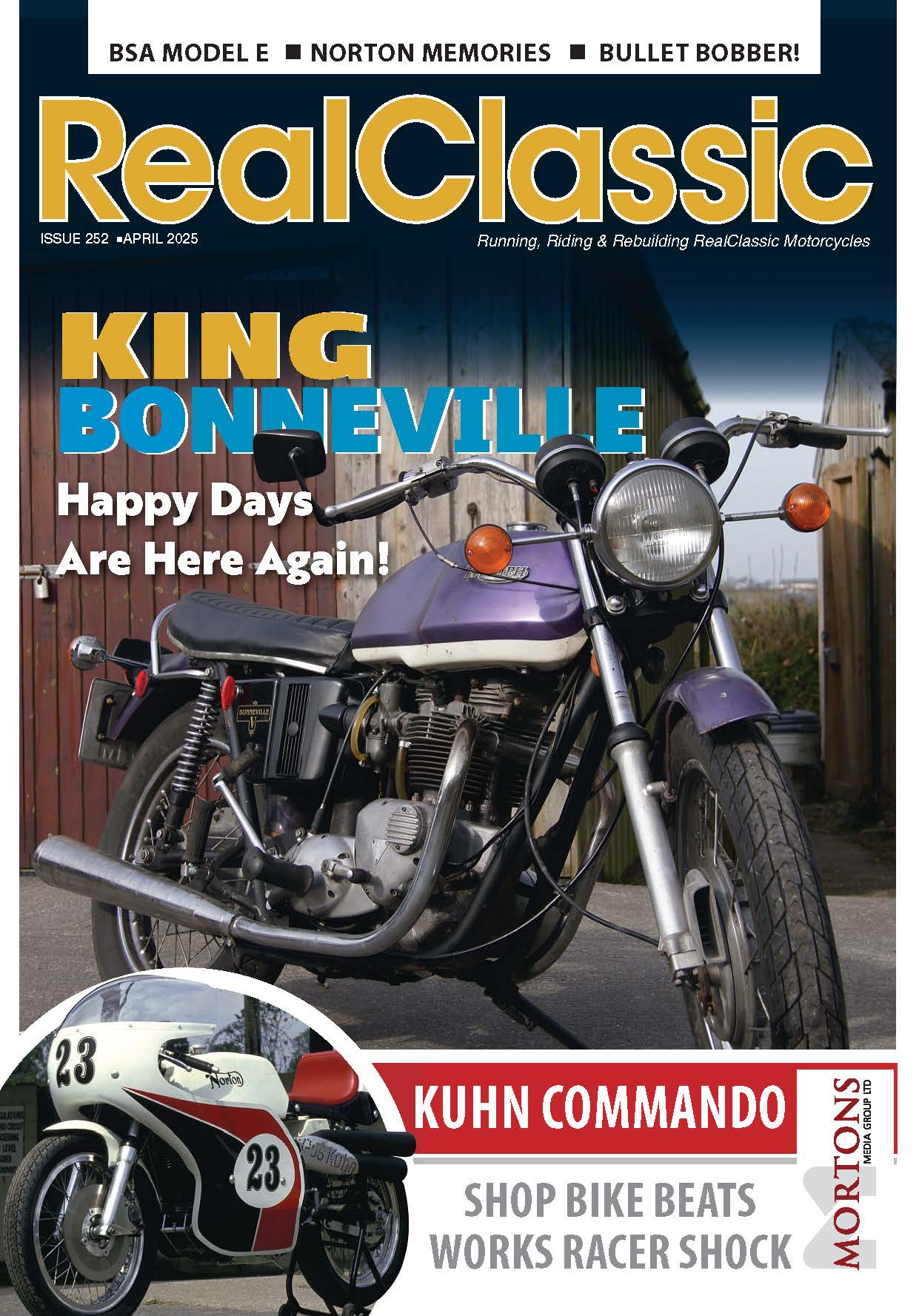
A true enthusiast’s book, this one; packed with technical information and racing recollections. Dave Minton discovers how the competition Triumph Daytona 500s performed so well in the late 1960s…
Journalists do not usually make the best authors, not where make or model histories are concerned. For these you need the sort of rivet-counting fanatics that send most of us, well, me anyway, running for cover when they appear. They write the minutia of their micro-evolutionary measured histories not for profit but because their addiction allows them no rest, no alternative.
While I refuse to admit I’m wrong, I am forced to reveal how right in every way is author Claudio Sintich (yes, the text is in English) for his exceptionally readable book Triumph 500 Unit Twin (Road Racing History of). I have long disliked the one-make histories so popular among publishers, less so with authors, and I include myself among these.
Quite simply, too much history runs through the people and events and products and technology of any manufacturer to accurately list and describe anything satisfactorily.
Wisely, Sintich and his publisher, Panther, have taken the brave decision to devote an entire book to Triumph’s 500 unit twin road racer; neither the road versions, the off-road or even the 350; purely the racers. By God and good King Hal, he’s covered them like no-one else has, from the reasons why through design and development, the engineers, the racers themselves and the technicalities of the bikes themselves – for just one example down to such details as Jack Shemans’ meticulously comprehensive notes on precise piston, camshaft, crankshaft etc measurements made during bench testing for the 1968 Daytona engines. It’s astonishing!
If I have one mild criticism it lies in the slight paucity of information of Percy Tait’s extraordinary success in British and European major events, such as his quite astonishing 2nd place in the 1968 Belgian Grand Prix behind Giacomo Agostini (MV Agusta). Now that extraordinary race, and a few others, really do deserve greater coverage, but Sintich appears to have concentrated on the USA (Daytona) action and, while undeniably important and compelling, I could have done with a little more ‘Over Here’ reading. There are also occasional discrepancies in the text and captions relating to dates and names.
I really do not know how many people Sintich interviewed, how many notebooks he must have filled, how many photo archives he must have searched to achieve the extraordinary volume of information he has. I do know, however, that it must have involved research, patience and endurance beyond measure over many years. Certainly, though, I cannot recall reading a more methodically presented, painstakingly researched, more comprehensive model history than this.
RC Reviewer Dave Minton
Softback, 196 pages, over 300 photos and illustrations, from Panther Publishing, ISBN 978-0-9564975-0-5, RRP £22.95 or
buy one through Amazon for discounted prices
—————–
|
About the author: Claudio Sintich has always been a Triumph enthusiast from his very first bike, a Triumph Tiger Cub. He then graduated to a Tiger 100A. Claudio went to college in Portsmouth during the 1960s before returning to Italy where he eventually opened a successful motorcycle repair shop, ‘L’Inglese’ which specialises in British bikes — especially Triumphs. Contents include: introduction by Les Williams; background to the Unit 500cc; details on Les Williams, Jack Shemans, Bill Baird, Norman Hyde, Don Woodward, Percy Tait, Gary Nixon, Ken Sprayson, Mick Hemmings, Dave Degens, Rob Prior and Arthur Jakeman; the bikes for the Daytona 200 mile race and the race itself over several years; bikes for the 1967 and 68 season; the ‘Enfield’ frame; the Geoff Duke Special and other specials; how racing improved the road models, and more. |
500 Triumphs on Now… |
—————–
|
|
Like this page? Share it with these buttons: |
|
Search for books and magazines on
Ebay.co.uk




